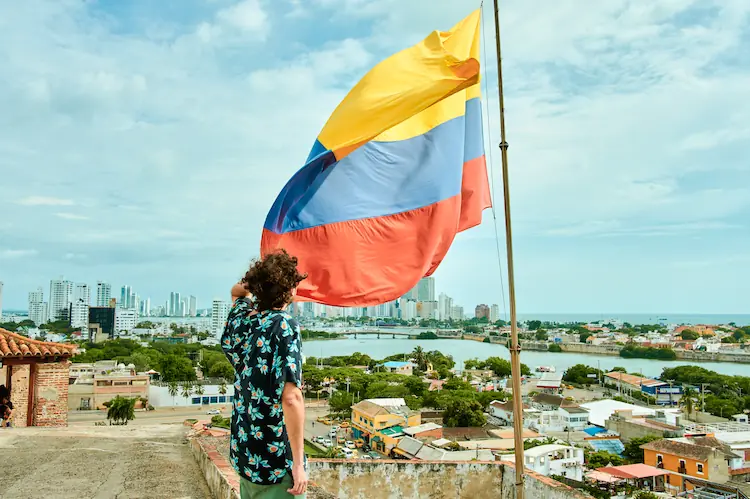SCOTUS Hears Oral Arguments in Five Cases

The U.S. Supreme Court’s November argument sitting continued last week, with five cases on the docket. The justices considered several important constitutional issues, including the religious rights of death row inmates and municipal ordinances regulating digital billboards.
Below is a brief summary of the cases before the Court:
Unicolors, Inc v. H&M Hennes & Mauritz, LP: The case seeks to resolve a circuit split over how to interpret 17 U.S.C. § 411 (b), which provides that if a party in a copyright infringement lawsuit alleges that a certificate of registration issued by the Copyright Office contains knowingly inaccurate information, then a court shall ask the Register to advise the court whether if the Register knew of that inaccuracy, he or she would have refused registration. The specific question before the Court is “[w]hether the U.S. Court of Appeals for the 9th Circuit erred in breaking with its own prior precedent and the findings of other circuits and the Copyright Office in holding that 17 U.S.C. § 411 requires referral to the Copyright Office where there is no indicia of fraud or material error as to the work at issue in the subject copyright registration.”
Federal Bureau of Investigation v. Fazaga: The case involves Section 1806 of the Foreign Intelligence Surveillance Act of 1978 (FISA), which governs the “[u]se of information” obtained or derived from electronic surveillance for foreign-intelligence purposes under FISA. Section 1806 (c) and (d) require the federal or a state government to provide notice to an aggrieved person whenever it intends to introduce such information as evidence in any proceedings against that person. Section 1806(e) affords the aggrieved person the opportunity to move to suppress any such information that was not obtained in compliance with FISA. And Section 1806(f) establishes special in camera and ex parte procedures to determine the admissibility of such evidence, if the Attorney General attests that a typical adversarial hearing would harm the national security of the United States. The justices have agreed to decide the following: “Whether Section 1806(f) of the Foreign Intelligence Surveillance Act of 1978 displaces the state-secrets privilege and authorizes a district court to resolve, in camera and ex parte, the merits of a lawsuit challenging the lawfulness of government surveillance by considering the privileged evidence.”
U.S. v. Vaello-Madero: The case concerns whether Congress can exclude Puerto Rico from federal disability benefits. The issue the justices must decide is: “Whether Congress violated the equal-protection component of the due process clause of the Fifth Amendment by establishing Supplemental Security Income — a program that provides benefits to needy aged, blind and disabled individuals — in the 50 states and the District of Columbia, and in the Northern Mariana Islands pursuant to a negotiated covenant, but not extending it to Puerto Rico.”
Ramirez v. Collier: The case involves how the Free Exercise Clause and Religious Land Use and Institutionalized Persons Act (RLUIPA) impacts the rights of death-row inmates. The Court has agreed to answer two questions: “Whether, consistent with the free exercise clause and RLUIPA, Texas’ decision to allow Ramirez’s pastor to enter the execution chamber, but forbidding the pastor from laying his hands on his parishioner as he dies, substantially burden the exercise of his religion, so as to require Texas to justify the deprivation as the least restrictive means of advancing a compelling governmental interest; and (2) whether, considering the free exercise clause and RLUIPA, Texas’ decision to allow Ramirez’s pastor to enter the execution chamber, but forbidding the pastor from singing prayers, saying prayers or scripture, or whispering prayers or scripture, substantially burden the exercise of his religion, so as to require Texas to justify the deprivation as the least restrictive means of advancing a compelling governmental interest.”
Ramirez v. Collier: The case involves how the Free Exercise Clause and Religious Land Use and Institutionalized Persons Act (RLUIPA) impacts the rights of death-row inmates. The Court has agreed to answer two questions: “Whether, consistent with the free exercise clause and RLUIPA, Texas’ decision to allow Ramirez’s pastor to enter the execution chamber, but forbidding the pastor from laying his hands on his parishioner as he dies, substantially burden the exercise of his religion, so as to require Texas to justify the deprivation as the least restrictive means of advancing a compelling governmental interest; and (2) whether, considering the free exercise clause and RLUIPA, Texas’ decision to allow Ramirez’s pastor to enter the execution chamber, but forbidding the pastor from singing prayers, saying prayers or scripture, or whispering prayers or scripture, substantially burden the exercise of his religion, so as to require Texas to justify the deprivation as the least restrictive means of advancing a compelling governmental interest.”
Previous Articles
Key Takeaways from Oral Arguments in Court’s Controversial Voting-Rights Case
by DONALD SCARINCI on November 12, 2025
The U.S. Supreme Court recently heard oral arguments in Louisiana v. Callais, which involves a key ...
Key Cases to Watch During the Supreme Court’s November Sitting
by DONALD SCARINCI on November 5, 2025
The U.S. Supreme Court’s November sitting begins on November 3 and concludes on November 12, 2025...
SCOTUS Clears Way to Terminate Protected Status for Venezuelan Nationals
by DONALD SCARINCI on October 29, 2025
On October 3, 2025, the U.S. Supreme Court granted an emergency request from the Trump Administrati...
The Amendments
-
Amendment1
- Establishment ClauseFree Exercise Clause
- Freedom of Speech
- Freedoms of Press
- Freedom of Assembly, and Petitition
-
Amendment2
- The Right to Bear Arms
-
Amendment4
- Unreasonable Searches and Seizures
-
Amendment5
- Due Process
- Eminent Domain
- Rights of Criminal Defendants
Preamble to the Bill of Rights
Congress of the United States begun and held at the City of New-York, on Wednesday the fourth of March, one thousand seven hundred and eighty nine.
THE Conventions of a number of the States, having at the time of their adopting the Constitution, expressed a desire, in order to prevent misconstruction or abuse of its powers, that further declaratory and restrictive clauses should be added: And as extending the ground of public confidence in the Government, will best ensure the beneficent ends of its institution.





